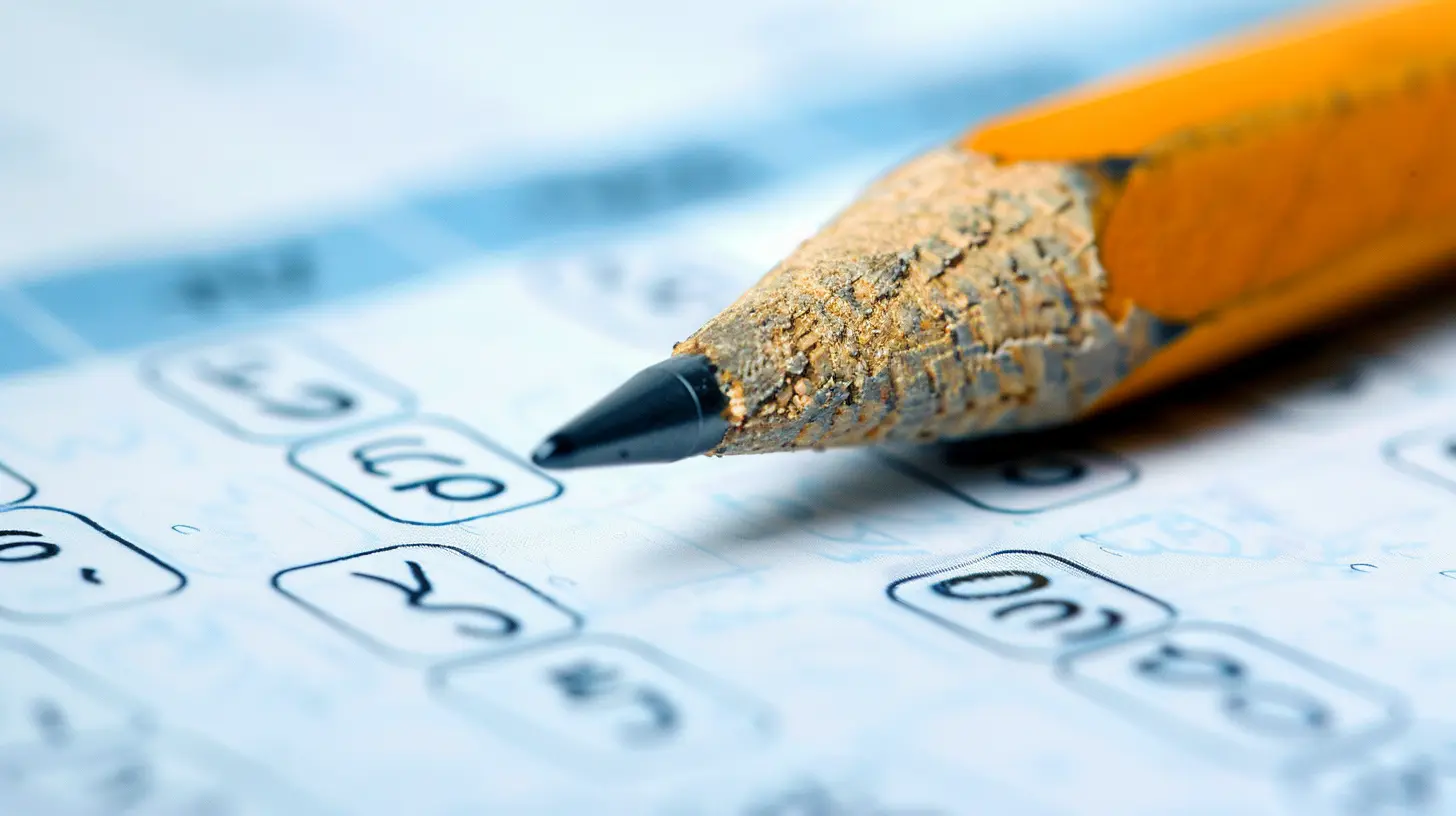The Impact of Positive Thinking on Exam Performance
12 July 2025
Do you ever feel like your mind is your own worst enemy when it comes to exam time? You’ve studied for weeks, nailed all the practice questions, but the second you sit down to start your exam, your brain hits the panic button. It’s as though all the knowledge you’ve crammed in there disappears in an instant. Sound familiar? You’re not alone. But what if I told you that one of the biggest factors influencing your exam performance isn’t how much you’ve studied or even how well you understand the material? It’s your mindset.
Let’s dive into how positive thinking can make a massive difference in your exam results and, more importantly, how you can harness it to your advantage.
What is Positive Thinking?
Before we go any further, let's clarify what positive thinking actually means. It’s not about ignoring life’s challenges or pretending problems don’t exist. Instead, it’s about facing those challenges with a mindset that focuses on solutions, resilience, and self-belief.Think of it like this: When you’re about to face an exam, you could either tell yourself, “I’m going to fail. I can’t do this,” or you could say, “I’ve prepared for this. I’m going to give it my best shot.” The first mindset shuts you down before you even begin, while the second opens you up to succeed.
Positive Thinking vs. Negative Thinking
Positive thinking and negative thinking are like two opposing forces in your brain. Negative thinking thrives on fear, doubt, and anxiety, while positive thinking nurtures confidence, optimism, and calm. Unfortunately, the human brain has a natural tendency to lean toward negativity — it’s a survival mechanism (thanks, evolution!). But with conscious effort, you can train your brain to think more positively, and that’s where the magic happens.
The Science Behind Positive Thinking
You might be wondering, “Okay, but does positive thinking really make a difference, or is it just self-help fluff?” Science says it’s real — and powerful.How Positive Thinking Affects the Brain
When you engage in positive thinking, your brain releases chemicals like dopamine, serotonin, and endorphins. These are the so-called "feel-good" chemicals that help regulate your mood, enhance concentration, and lower stress levels. In fact, studies show that these chemicals can improve cognitive function, memory retention, and problem-solving skills — all of which are crucial during exams.On the flip side, negative thinking spikes cortisol, the stress hormone. While cortisol is helpful in small doses (think fight-or-flight mode), too much of it can lead to brain fog, anxiety, and trouble focusing — none of which are helpful when you're trying to recall information during an exam.
The Power of the Placebo Effect
Ever heard of the placebo effect? It’s when someone experiences real, positive effects from a treatment that has no actual therapeutic value, simply because they believe it’s working. The placebo effect is a powerful demonstration of how our thoughts can influence our physical and mental states. In the context of exams, if you believe that you’re capable and prepared, you’re much more likely to perform well.
Benefits of Positive Thinking on Exam Performance
Now that we know positive thinking isn't just a fluffy concept, let’s get into the specific ways it can boost your exam performance.1. Reduces Exam Anxiety
We’ve all been there: your heart races, your palms get sweaty, and your mind goes blank the second you see the first exam question. This is classic exam anxiety. Positive thinking can help reduce this anxiety by shifting your focus away from fear and toward confidence. When you tell yourself, “I'm capable, and I know this material,” you start to believe it, and that belief can calm your nerves.2. Improves Focus and Concentration
When you're stressed or filled with self-doubt, it’s hard to concentrate. Your brain is too busy freaking out to pay attention to the task at hand. But with a positive mindset, you’re more likely to stay focused. You’ll be less distracted by thoughts of failure and more present in the moment, absorbing and applying the material you’ve studied.3. Boosts Memory Retention
Stress negatively impacts memory. When you’re in panic mode, your brain has a harder time retrieving information. Positive thinking, however, helps reduce stress and improves memory function. You’ll find it easier to recall information, connect concepts, and even think more creatively when tackling tricky questions.4. Encourages a Growth Mindset
A growth mindset is the belief that your abilities can improve with effort and learning. Positive thinking fosters this mindset, helping you to approach challenges (like tough exam questions) with curiosity rather than fear. Instead of thinking, “I can’t do this,” you’ll think, “This is tough, but I can figure it out.” That shift in perspective can make a world of difference in how you tackle difficult problems.
How to Cultivate Positive Thinking Before and During Exams
Okay, so now we know why positive thinking is important. But how do we actually do it, especially when exam stress hits hard? Don’t worry — it’s not as hard as it sounds. With a few simple strategies, you can train your brain to think positively, even under pressure.1. Practice Mindfulness and Meditation
Mindfulness helps bring your focus back to the present moment, reducing anxiety about the future (like worrying about your exam results). Just a few minutes of deep breathing or meditation each day can help you stay calm and centered. Apps like Headspace or Calm are great for beginners.2. Use Positive Affirmations
Affirmations are short, positive statements that you repeat to yourself to reinforce a desired mindset. For example, before an exam, you might say, “I am prepared, and I will do my best.” Over time, these affirmations can help rewire your brain to think more positively. It might feel silly at first, but trust me, it works!3. Visualize Success
This might sound a bit “woo-woo,” but visualization is a powerful technique used by athletes, performers, and successful individuals in all walks of life. Before your exam, take a few minutes to close your eyes and picture yourself succeeding. Imagine walking out of the exam room feeling confident and proud. Visualization helps condition your brain for success.4. Surround Yourself with Positivity
The people you surround yourself with have a massive impact on your mindset. If you're constantly around negative, pessimistic people, their attitudes will rub off on you. Instead, hang out with individuals who uplift and encourage you. You can also consume positive content, like motivational videos, podcasts, or books.5. Reframe Negative Thoughts
Whenever a negative thought pops into your mind (like “I’m going to fail this exam”), challenge it. Ask yourself, “Is this thought really true?” More often than not, negative thoughts are exaggerated and irrational. By reframing them into more balanced, positive statements, you can start to shift your mindset. For example, instead of “I’m going to fail,” try “I’ve studied hard, and I’ll give it my best effort.”Real-Life Examples of Positive Thinking in Action
To bring this all home, let’s look at a real-life example.Example: Sarah’s Story
Sarah was a student who always struggled with exam anxiety. No matter how much she studied, the moment she sat down to take a test, she felt like she was going to fail. Her negative thoughts were overwhelming, and as a result, her exam scores were always lower than expected.One day, a teacher introduced her to the concept of positive thinking. Sarah started using positive affirmations and visualizing herself succeeding before each exam. She practiced mindfulness and surrounded herself with friends who encouraged her.
Slowly but surely, Sarah’s mindset began to shift. She became more confident, less anxious, and her exam performance improved dramatically. It wasn’t that she suddenly became smarter — she just learned how to harness the power of positive thinking.
Final Thoughts: Mind Over Matter
At the end of the day, positive thinking won’t replace hard work. You still need to study and prepare for your exams. But by adopting a positive mindset, you can maximize the results of that hard work. It’s like adding a secret weapon to your exam toolkit. When you believe in yourself, you’re more likely to perform at your best.So the next time exam season rolls around, remember this: Your mindset matters. Stay positive, and you’ll be amazed at what you can achieve.
all images in this post were generated using AI tools
Category:
Test PreparationAuthor:

Olivia Chapman
Discussion
rate this article
1 comments
Nellie Wood
Positive thinking enhances motivation and reduces anxiety, leading to improved focus and retention. Cultivating a positive mindset can significantly boost exam performance and confidence.
July 22, 2025 at 5:00 AM

Olivia Chapman
Thank you for your insightful comment! I completely agree—positive thinking plays a crucial role in enhancing motivation and reducing anxiety, ultimately improving exam performance.


